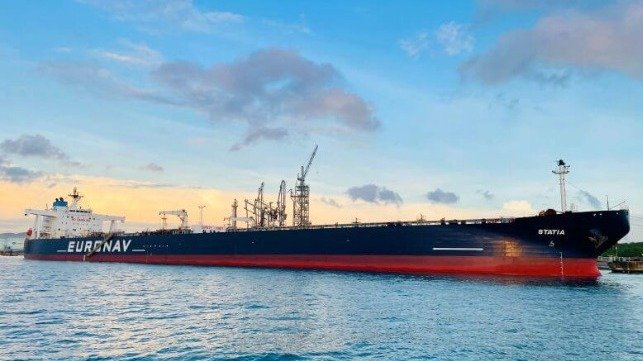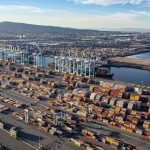Euronav, which has a fleet of more than 70 owned and operated tankers, recently completed one of the first tests in the oil industry using a blended biofuel to power a Suezmax crude oil tanker. The vessel is using a biodiesel blend designed to decrease CO2 lifecycle emission while having no impact on the operations of the vessel.
The Statia, a 15-year-old 150,200 dwt Suezmax bunkered during September 1,502 MT of a B30 biodiesel blend manufactured by BP. The biofuel is composed of 30 percent advanced carbon neutral biofuel mixed with 70 percent of a conventional VLSFO bunker fuel. The blend was supplied in the port of Rotterdam, where there is a government incentive in place to allow for the cost-effective blending of biofuels into marine fuels (Incentive Scheme for Climate-Friendly Shipping).
“It is important for us to understand how to handle biofuels on our vessels, to test their longevity and stability, and how they behave when used in engines, generators, and alike. The migration into using biofuels is a critical step on the road to reducing emissions, as the use of biofuel will reduce our overall impact on the environment with little additional investment,” said Rustin Edwards, Head of Fuel Oil at Euronav. “The use of biofuel blends will be a critical bridge to decarbonization until the development and commercial availability of zero emissions fuels. As we continue this journey toward decarbonization, we will keep on adjusting our operations and our fuel procurement strategies as needed.”
During a two-week trial, while the vessel was in commercial operations on its way to Angola, the Statia tested approximately 360 MT of the B30 biofuel blend. Euronav says the trial of the blend was successful and showed no significant differences in operations or any malfunctions that could lead to a breakdown. As a result, on the next leg of the voyage to Brazil, the remaining B30 biofuel blend on the vessel is now the only fuel in operational use, both for the main engine and the auxiliary engines.
Konstantinos Papoutsis, Sustainability Manager at Euronav: “As one of the key contributors to the establishment of the Poseidon Principles and the Sea Cargo Charter, and as a signatory of the’ Call to Action for Shipping Decarbonization’ statement from the Global Maritime Forum, Euronav places a particular emphasis on building ambitious yet seamless decarbonization trajectories. We are and will continue to be committed to embracing innovative fuel technologies towards achieving our ambition of zero emission shipping operations.”
Source: The Maritime Executive






